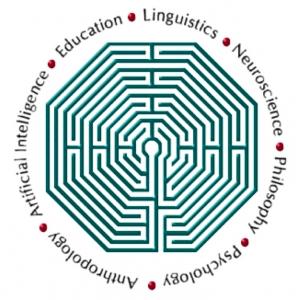Symposium
“Computational and Cognitive Aspects of Narrative”
at CogSci 2013 in Berlin
The CMN workshop is a satellite workshop of the the 35th meeting of the Cognitive Science Society; our topic will also be represented by a symposium “Computational and Cognitive Aspects of Narrative” as part of the main conference CogSci 2013 in Berlin.
Attendance requires CogSci conference registration. See also the travel information on how to get from Hamburg to Berlin and vice versa.
Computational and Cognitive Aspects of
Narrative
Friday, 2 August, 10:30–12:10
Humboldt Universität zu Berlin, Senatssaal Unter den Linden (Room 6) (→ travel information)
Humboldt Universität zu Berlin, Senatssaal Unter den Linden (Room 6) (→ travel information)
Two page symposium description published in the proceedings of CogSci 2013 (PDF)
Speakers
Narrative
Knowledge and “Repetition-Break” Plot Structures
Abstract: Narratives convey causal,
temporal, and other kinds of relational knowledge, the
sort of knowledge that comprises expertise. Comparing
narratives is one of the quickest and most powerful
ways to develop expert knowledge, as indicated by the
analogy literature. Analogy provides a means for
identifying commonalities, and in particular,
structural commonalities, and so provides a basis for
revealing narrative structure. A further insight is the
pairing of repetition with contrast to form a plot
structure that serves as a recipe for surprise.
Folktales (e.g., the three billy goats gruff), jokes
(e.g., three guys walk into a bar…),
advertisements (e.g., MasterCard’s priceless
campaign), and other types of narratives frequently
make use of these “repetition-break” plots. The
repetition in the narrative structure leads audiences
to draw comparisons, perhaps learning something, and
forming expectations that more similar items will
follow. The break or contrast in the narrative
structure surprises audiences by deviating from their
expectations. Narratives with repetition-break plots
are prevalent, often well-liked, often
socially-selected both by popular attention and expert
judges, and capable of influencing audiences towards
adopting the narrative’s views. This is just one
example of the potential for narrative structure to
yield significant returns.
Readers' Participation in Narrative
Experiences
Abstract: Gerrig will outline a
participatory perspective on readers’ experiences of
narratives. He proposes that readers encode types of
mental contents (called participatory responses) that
fall beyond the ordinary scope of computational models
of narrative. Readers, for example, encode responses
toward characters actions and preferences for
particular outcomes. Those participatory responses vary
from reader to reader and structure their individual
experiences toward narratives.
Naturalness and Computability in
Computational Narrative Representations
Abstract: Humans have an astonishing
ability to infer different facets of narrative
structure from a description of events. These facets
include the representation of the temporal order of
events as well as the motivation behind the actions and
reactions of agents based on their goals and beliefs.
Computational representations of narrative time and
plot can be assessed in terms of their naturalness for
humans to infer as well as their computability. Such an
assessment suggests a number of psychological
investigations that could help provide constraints on
formal aspects of these representations.
Statistical vs. Intelligent
Modelling of Human Narrative Processing
Abstract: The former Google CEO’s Eric
Schmidt’s dictum “In God we trust—all others bring
data” epitomizes the neo-positivist underpinning of
‘big data’ approaches to complex phenomena. Search
engine algorithms aim at representing such phenomena in
terms of mathematical and statistical phenomena which
by-pass human intelligence. Meister’s talk aims to
reinterpret what looks like a purely methodological
decision as an ethically problematic choice that is
based on a reductionist concept of intelligent
behavior. Meister will use examples from narrative to
illustrate and emphasize his points.
Cognition as the Decider:
Comprehension and the Next Steps to Plan-Based
Narrative Generation
Abstract: A range of methods for the
automatic construction of narratives have been
developed in the last 10 years, many of them based on
automatic planning methods drawn from AI. While these
techniques have benefited from extensions to the
standard knowledge representations that target
interesting aspects of narrative structure, they often
leave out the role of narrative at the discourse level.
These models speak to only part of the functional
properties of narrative as a result. In this talk,
Young will point to these limitations in his own work
and describe new models being developed that focus on
narrative as a means to prompt comprehension on the
part of the reader/viewer/player. These new models
attempt to produce narrative story and discourse in
text, video and video games that create experiences for
their users rather than focus solely on the creation of
appropriate narrative structural elements.

